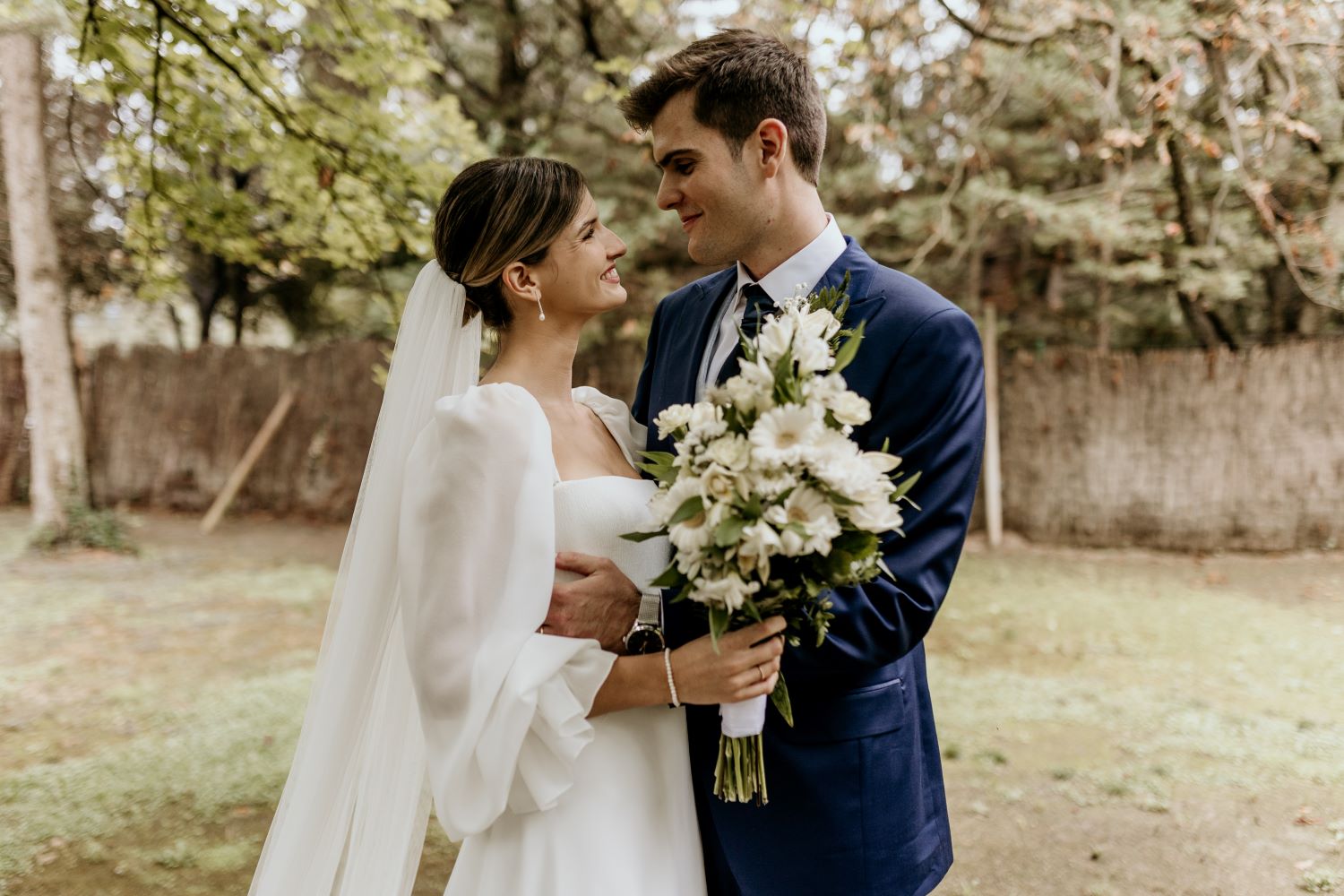Selecting a wedding date is one of the most important decisions for couples, as it will influence many aspects: the wedding location, venue availability, budget, daytime or evening wedding, friends and family availability, and more.
To help you make this decision, here are some key factors to consider for choosing the perfect wedding date.
Factors to consider when choosing a wedding date
These are the most important aspects to keep in mind when selecting your wedding date:
- Location where you want to get married
- Season of the year
- Day of the week
- Special date for the couple
- Budget
- Availability of close friends and family
- Honeymoon destination
Let’s take a closer look at each one:
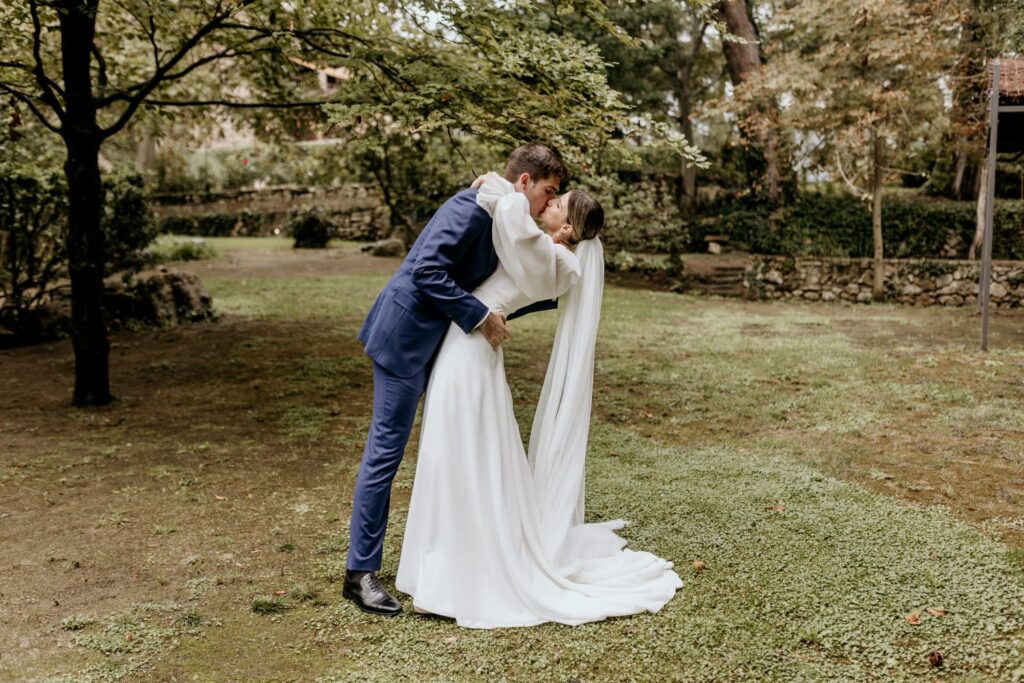
by Tarannà Estudi Creatiu
Location where you want to get married
The first factor to consider when choosing your wedding date is the location. This includes both the general area, to evaluate the climate, local amenities, convenience, etc., and the specific wedding venue, to check availability, pricing, and conditions.
It’s recommended to book the date and venue around a year in advance (typically between 2 years and 9 months before the wedding) to secure the place you love and start planning the wedding with enough time.

By Oma Bodas
Season of the year
Closely tied to the location, you’ll need to decide which season you’d like for your wedding. If you’re dreaming of a Mediterranean-style wedding, spring or summer dates are ideal to enjoy sunny weather. Alternatively, an autumn wedding at a cozy countryside estate might be more your style.
The type or theme of the wedding will also play a role: an outdoor banquet, a religious ceremony in a church, a civil ceremony, a cocktail-style wedding, a destination wedding, or a weekend-long celebration—all of these factors will influence to choose the date and season.
If you choose a spring or summer date in warmer climates, consider an evening wedding to avoid the hottest hours of the day. For autumn or winter weddings, a daytime event is recommended to make the most of sunlight and milder temperatures.
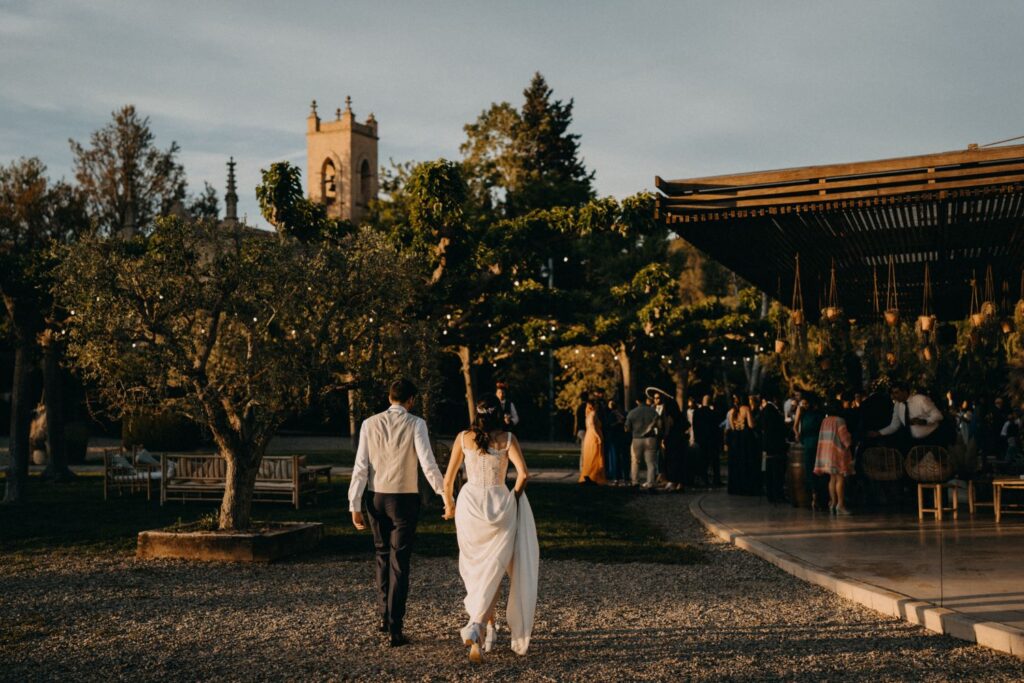
by North Miles
Day of the week
Once you’ve chosen the season, you’ll need to decide on the day of the week for the celebration. Saturdays are the most popular choice, followed by Fridays and Sundays, but weddings can be held on any day of the week! Keep in mind holidays, vacation periods, and special dates (Valentine’s Day, New Year’s Eve, etc.).
Remember that Saturdays and special dates are in high demand, and availability may be limited. That’s why booking early is crucial to securing your preferred venue and date.
Special date for the couple
Consider whether you’d like to tie the knot on a date that’s meaningful to you: the day you met, your engagement anniversary, a family tradition, a date featuring your favorite number, etc.
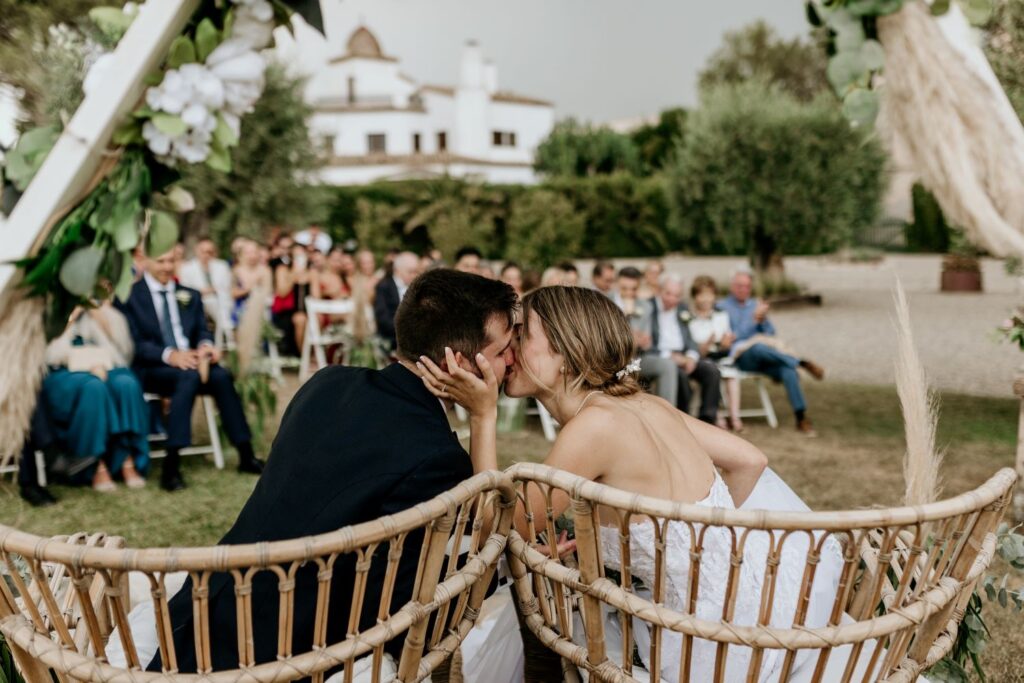
by Tarannà Estudi Creatiu
Budget
As you explore dates and venues, you’ll notice that prices and conditions vary depending on the season and the chosen day. High season (typically from April to October) and Saturdays or special holidays often come with higher costs.
If you’re on a tighter budget, consider an off-season date or a weekday wedding. These options often come with lower menu price or venue rental costs. Even if the price remains the same, some venues may require a lower minimum guest count during the off-season, which could better suit your plans.
Availability of close friends and family
Another crucial factor is the availability of your closest friends and family. It may be challenging to find a date that works for everyone, but try to avoid periods of heavy workloads, major exams, or vacations for those who matter most.
If the wedding is local, this might not be as big an issue, but for destination weddings or wedding with many guests coming from abroad, it’s essential to choose a date that accommodates travel.
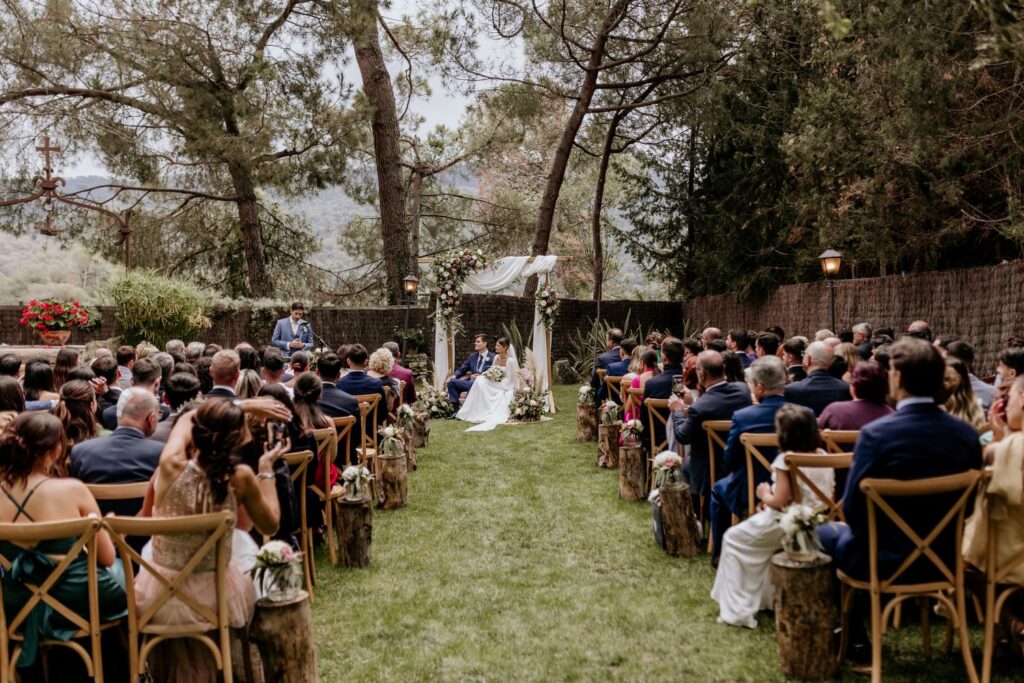
by Tarannà Estudi Creatiu
Honeymoon destination
Finally, think about your honeymoon destination. Companies typically grant 15 days of leave to newlyweds starting from the wedding day (the legal wedding date).
If you have a specific destination in mind, check whether the 15 days following your wedding will be the best time to visit in terms of weather, availability, and conditions. For instance, if you’re dreaming of seeing the Northern Lights in Finland, you’ll need to plan your wedding and trip around the best time to experience them.
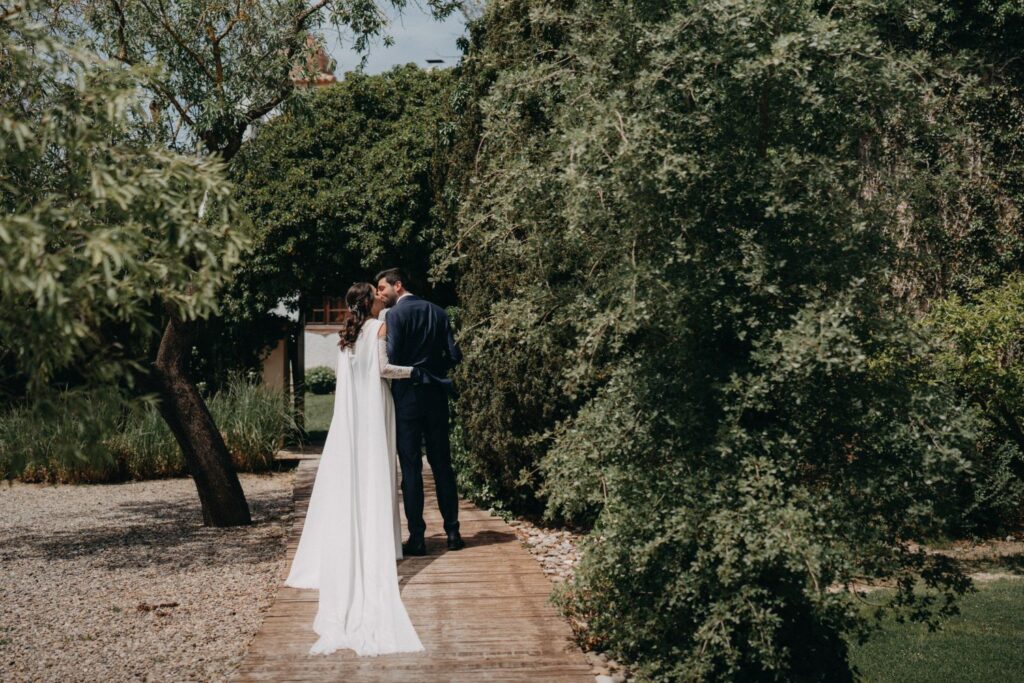
by North Miles
As we’ve seen, your wedding date will determine many things. We recommend seeking advice from the coordinators or sales teams at the wedding venues you visit, as well as your wedding planner, to find the ideal date for your big day.
Cover image by Tarannà Estudi Creatiu
